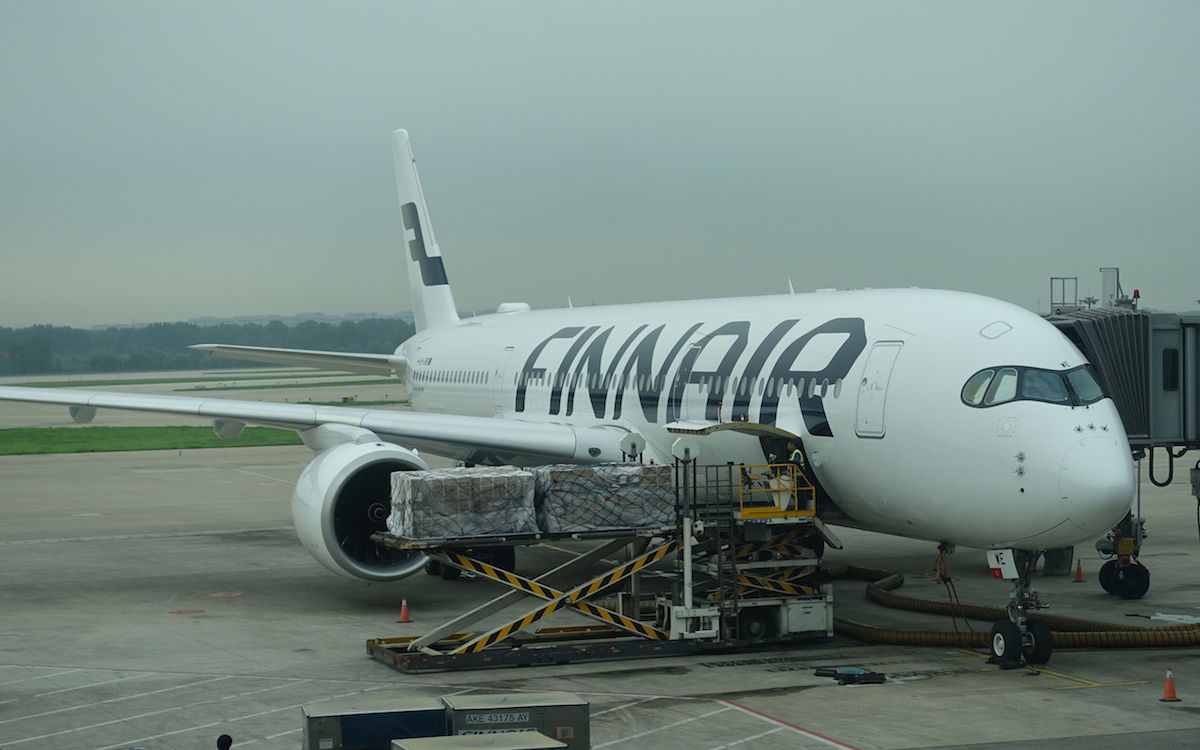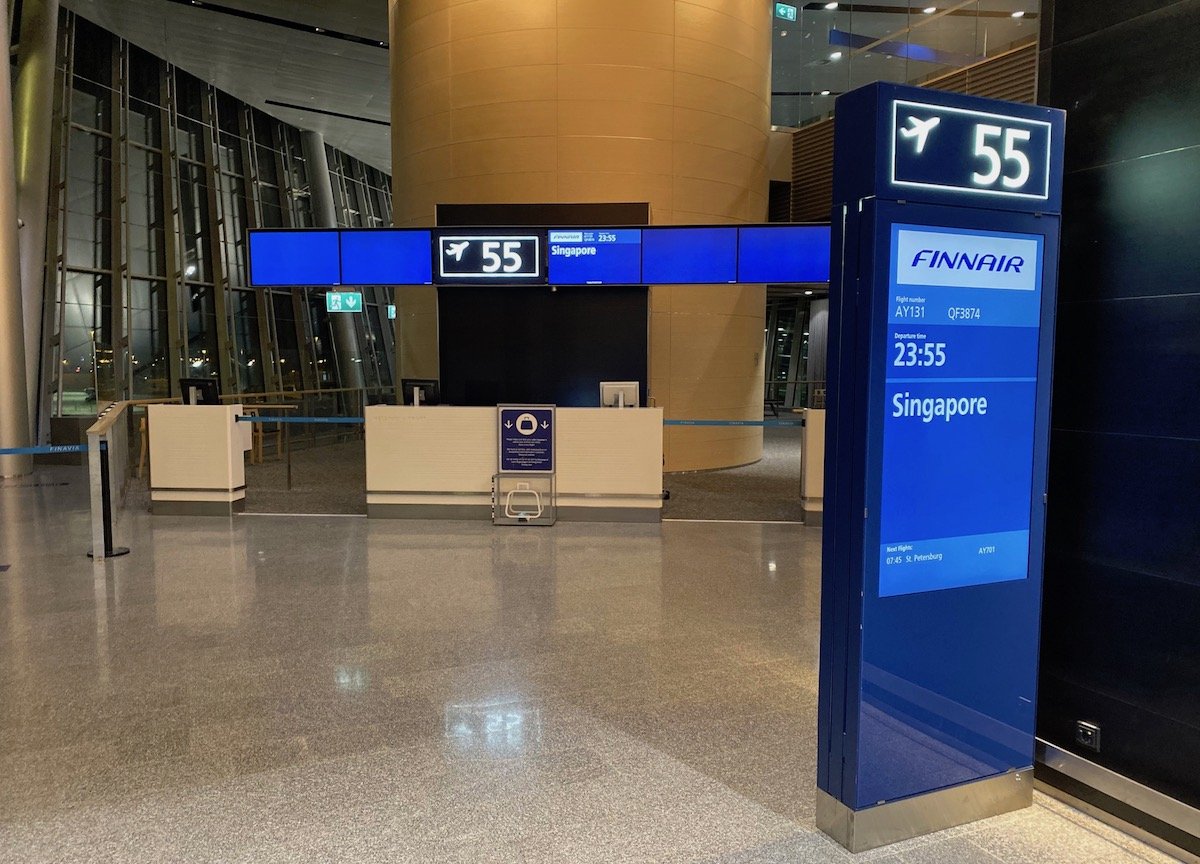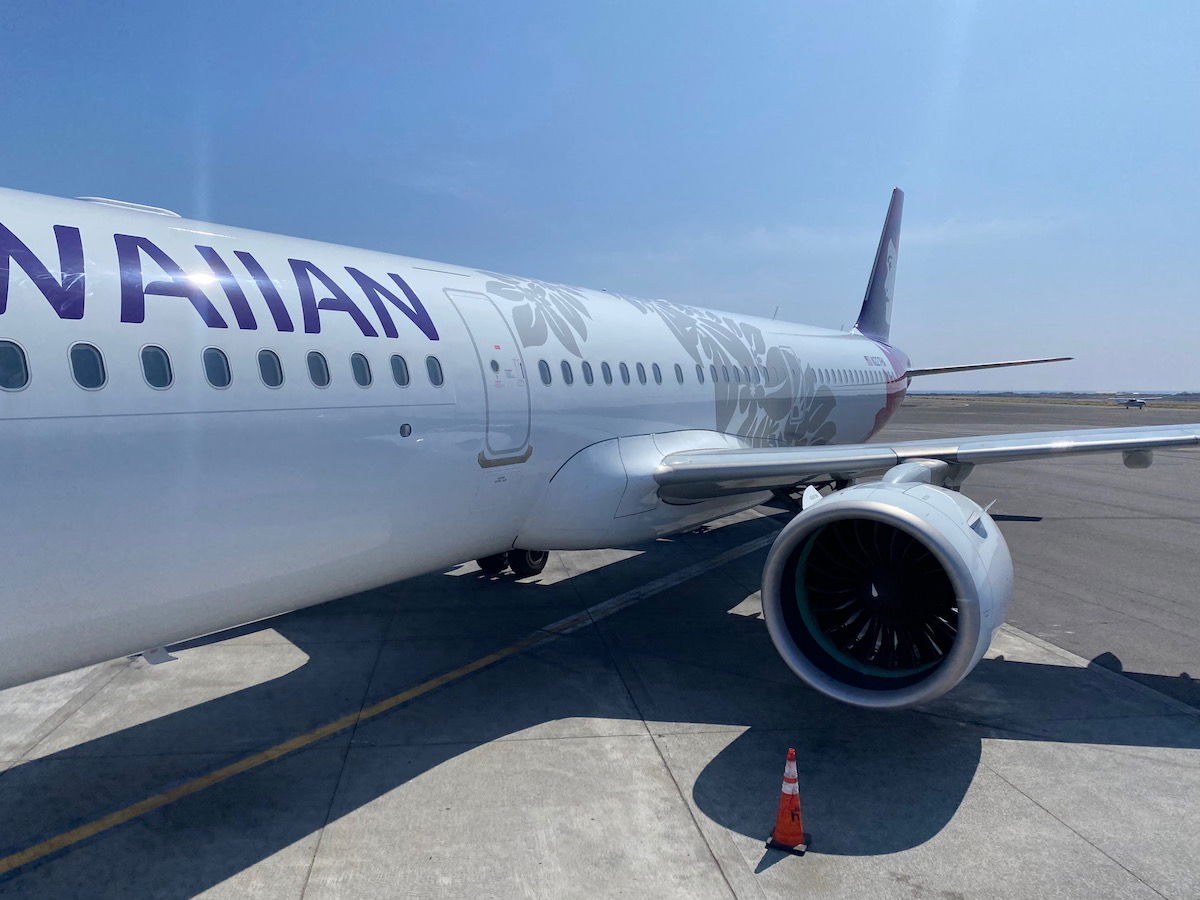If you’re flying Finnair through its Helsinki hub in the coming months, you may be asked to step on a scale at your departure gate…
In this post:
Finnair collecting passenger weight data
In the coming months, Finnair will be asking some travelers to step on a scale, in order to provide passenger weight data. Specifically, this will be taking place at Finnair departure gates in February, April, and May of 2024. The airline will be using a random sampling of gates, including both European flights within the Schengen area, as well as long haul flights in the non-Schengen area.
Understandably, many people may be embarrassed by being asked to step on a scale in public, since it’s not often you’re asked to do that at airports. What’s the logic? Well, airlines have to calculate an average weight per passenger for operational purposes (maximum takeoff weight, how much fuel is needed, etc.).
So while the airline can easily determine the weight of the aircraft, fuel, checked bags, cargo, onboard catering, and water tanks, averages need to be used for passengers. So the results of this survey will determine what weight Finnair uses in the future for passenger weight.
Airlines have to recalculate this data every several years. The data was last collected in 2017 and 2018, so it’s time for an update. The average weight calculations will be delivered to Traficom, the Finnish Transport and Communications Agency, between July and September 2024, and then these numbers will be used for average calculations between 2025 and 2030.

How exactly does this weight survey work?
Passengers being weighed isn’t compulsory, but the airline appreciates those who help out. Even among those who volunteer, the data is anonymized. Here’s how Finnair’s Head of Ground Processes, Satu Munnukka, describes this initiative:
“We use the weighing data for the average calculations required for the safe operation of flights, and the collected data is not linked in any way to the customer’s personal data.”
“We record the total weight and background information of the customer and their carry-on baggage, but we do not ask for the name or booking number, for example. Only the customer service agent working at the measuring point can see the total weight, so you can participate in the study with peace of mind.”
“We weigh volunteer customers together with their carry-on baggage. In the measurement, we do not ask for personal data, but the total weight of the customer and carry-on baggage, the customer’s age, gender and travel class are recorded in the database. No information is collected that would allow participants to be identified.”
“In the previous measurements five years ago, a good number of volunteers wanted to participate in the weighing, and we hope to have a good sample of volunteers, both business and leisure travellers, also this time, so that we can get the most accurate information possible for important balance calculations.”
I can’t help but wonder if these numbers are actually fully accurate. In other words, even if it’s just subconscious, is there a bias whereby those who weigh less or those who have lighter carry-ons are more likely to voluntarily participate in this than others. If someone knew their carry-on bag was overweight, would they be just as likely to get on one of these?

Hawaiian’s American Samoa experiment
Finnair passengers being weighed brings to mind a 2016 story. Hawaiian Airlines noted that fuel burn was consistently higher on flights between Honolulu and Pago Pago than it was on other routes.
This caused the airline to believe that weight assumptions for this route were inaccurate. Nearly 94% of the population in American Samoa is overweight or obese, so it’s understandable that you might not want to assume average passengers weights are the same on flights to Japan as they are on flights to American Samoa, for example.
So the airline conducted a survey over the course of six months, whereby passengers and their carry-ons were weighed, to determine the average weights. The airline also only assigned seats at check-in so that weight could be distributed throughout the plane as efficiently as possible.

Bottom line
Every so often, airlines need to weigh passengers so that they can make accurate projections. That’s happening over the coming months at Finnair, as the airline is asking passengers at select departure gates to step on scales. As embarrassing as it may seem, this is ultimately voluntary, and the data is also anonymous. So this isn’t a situation where a gate agent asks you to stand on the baggage scale and then reads your weight out loud.
Has anyone been asked to get on a scale when flying on a commercial flight?





There should be a combined luggage/passenger limit.
How do other airlines handle it or do they just assume an average weight
I believe that the "only the agent sees the weight" approach isn't good and will still put many people off participating. I recall some other airline doing this in a more sophisticated way where no one saw the pax's weight, not even the agent overseeing the process. The scale simply registered it in the database without showing it to anyone. The only feedback was an audible "ok" signal.
They should also track by nationality. If a flight has a oversized population of Americans on board, they would need to know the effect on aircraft weight. Finnair may even need to reduce the number of passengers on board if its so American heavy.
That wouldn't work (even if it was a good idea, which it isn't) since Finnair generally doesn't know nationality of pax on board. The exception to this are non-Schengen flights where API is required, but those are mostly longhauls where the pax weight matters a lot less, and flights to Spain.
Thus, even if AY knew that Americans weigh more on average, it would be useless since they generally don't know whether they have Americans on board.
Once upon a time, while traveling around Papua New Guinea, Air Niuguini required all pax and carryons to be weighed on flights over then poorly mapped interior mountain ranges. They used an analog scale where the readout faced the agent behind the counter, not towards passengers, so not even the person on the scale could see it. I blamed any excess weight on camera equipment in carryons.
1. I would think that overweight passengers or passengers with overweight luggage would participate less here. Accuracy?
2. If my weight is less than average I can bring (more) luggage with me, free of charge.
Could the airline not simply just ask for an I.D. that shows their weight and ask to record that at booking, but simply recorded without it adjoining the rest of their personal information? Having flown in small planes in Alaska I was asked my weight. I was fine with providing it to ensure my safety. If that conversely makes jet travel safer, and more efficient then lets do that.
How many people have an ID that shows their weight? Does that even exist anywhere in 2024?
If it's not compulsory, I'm sure those overweight passengers would never step on the scale..........
Put the scales in front of the Burger King counter.
OpenAI can probably sell a model that predicts your weight from your appearance.
Funny how people are embarrassed to be weighed in public. But they're not embarrassed to be seen on the plane eating junk food.
Open AI is a language learning module. How exactly is guessing the next word in a sentence going to help determine the average weight of passengers in Helsinki? People seem to think these AI modules are way more useful than they are. How many 7 fingered fakes does it take for people to realize the current publicly available AI is a scam?
Its honestly hilarious. The current functional AI models are great for data entry, chat prompts/call centers, etc... Yet people are subbing them for the idea of a fully functional AI that is doing complex strategic thinking/decision making that humans would do. And its allowing companies and marketing people to throw "with AI" in all over the place and people lap it up.
The irony/lack-of-precision of this all is that the folks who have caused a change in the average weight of passengers (it's gone up) are, historically, least likely to want to step on a scale at all - even if it's anonymous - for myriad reasons. I'm curious how far off the true average FinnAir's results will be.